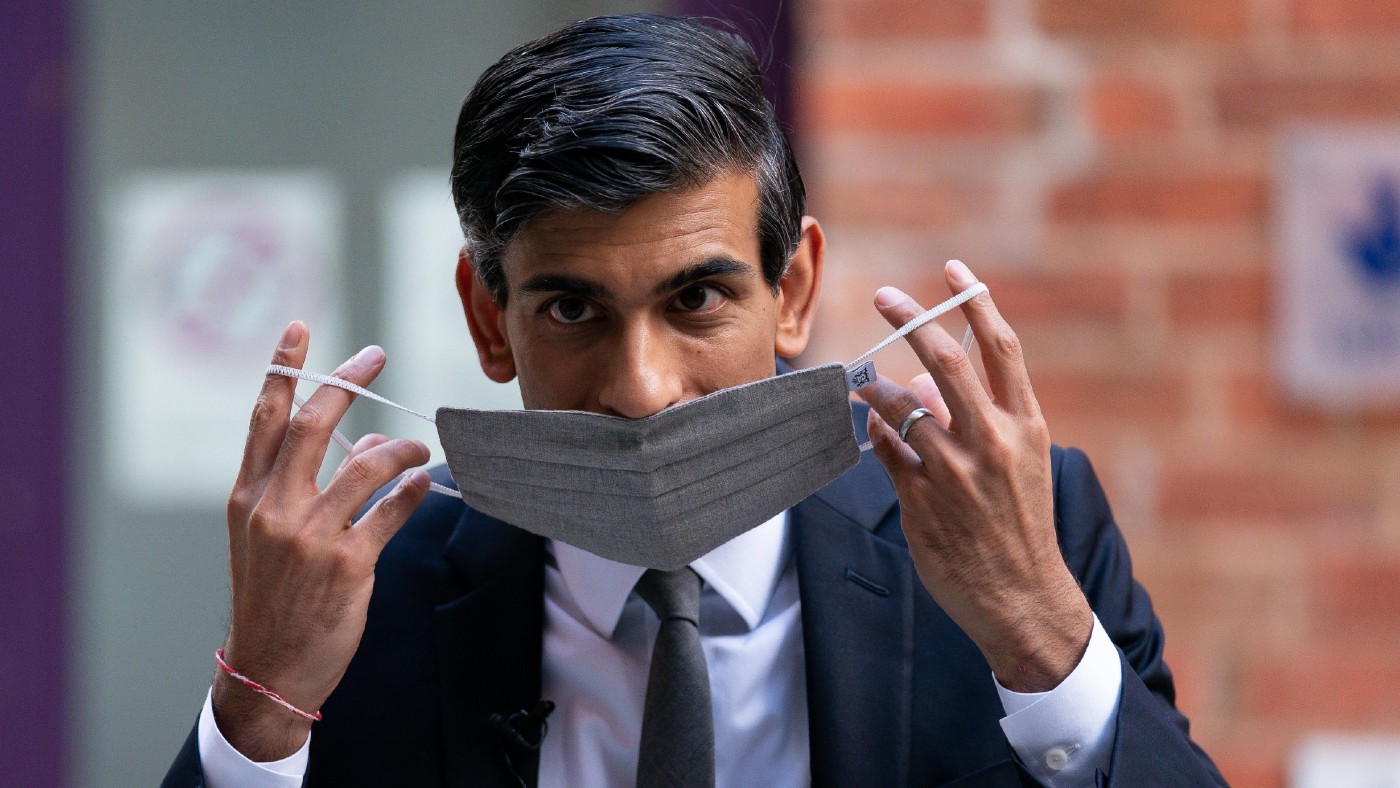A bumpy recovery for the economy
Inflation has been spooking markets, but the surging Delta variant poses a much greater risk

A free daily email with the biggest news stories of the day – and the best features from TheWeek.com
You are now subscribed
Your newsletter sign-up was successful
Many of us have fallen into the trap of black-and-white thinking during the pandemic, said Michael P. Regan in Bloomberg Businessweek. “The scintillating vision of the dark era of Covid lockdowns quickly giving way to a bright vaccinated future was simply too enticing to resist.” But the reality, as the virus stages a fresh assault, is a much less satisfying “grey area”. Stock markets have been reflecting the mixed message, presenting two visions of a recovery – one optimistic, one bumpy – in the same week. Prices lurched sharply downwards on Monday, but investors returned the following day determined to “buy the dip”. It looks like the pattern of things to come in what’s likely to be an “interesting” quarter – guaranteed “to test your stomach”.
At the heart of the market debate is the question of inflation, said David Brenchley in The Sunday Times. “The possibility that the Delta variant could slam the brakes on the economic recovery” has brought to a premature end the so-called “reflation trade” – the idea that you should invest to prepare for higher inflation, and rising interest rates. Yet, at the same time, many investors worry that rising inflation could force central banks to withdraw their unprecedented pandemic support “sooner than expected” – prompting market shocks around the world.
The US inflation rate rose to 5.4% in June, said Patrick Hosking in The Times – the highest in more than a decade. This “is a dark cloud that even the most cheerful investor struggles to ignore” because of what it means for corporate valuations. The US Fed is sticking with its story that “this inflation burst will be transitory only and can be largely ignored”. But surveys show US households “aren’t so sure”. That’s important, because “it is not merely official interest rate rises, but expectations of interest rate rises” that move markets.
The Week
Escape your echo chamber. Get the facts behind the news, plus analysis from multiple perspectives.

Sign up for The Week's Free Newsletters
From our morning news briefing to a weekly Good News Newsletter, get the best of The Week delivered directly to your inbox.
From our morning news briefing to a weekly Good News Newsletter, get the best of The Week delivered directly to your inbox.
“A little inflation is no bad thing,” said former IMF chief economist Kenneth Rogoff in the FT. “Prices are rising mainly because the US economy is doing vastly better than seemed possible a year ago.” Indeed, the “bigger risk” remains “an unexpected setback in the fight against the pandemic”.
The same is true in Britain, where the Bank of England is showing signs of waking up to the inflation danger, said David Smith in The Sunday Times. Chancellor Rishi Sunak may not welcome the impact of rising rates on the Government’s debt bill. But he’d face a far worse headache if a worsening health situation forced the Treasury “to wheel out its pandemic support again”, including restarting the furlough scheme. Its huge fiscal response was based on the understanding it would be time-limited. “The Chancellor has every reason to pray that the path to freedom, while bumpy, does not include any U-turns.”
A free daily email with the biggest news stories of the day – and the best features from TheWeek.com
-
 One great cookbook: Joshua McFadden’s ‘Six Seasons of Pasta’
One great cookbook: Joshua McFadden’s ‘Six Seasons of Pasta’the week recommends The pasta you know and love. But ever so much better.
-
 Scientists are worried about amoebas
Scientists are worried about amoebasUnder the radar Small and very mighty
-
 Buddhist monks’ US walk for peace
Buddhist monks’ US walk for peaceUnder the Radar Crowds have turned out on the roads from California to Washington and ‘millions are finding hope in their journey’
-
 Elon Musk’s starry mega-merger
Elon Musk’s starry mega-mergerTalking Point SpaceX founder is promising investors a rocket trip to the future – and a sprawling conglomerate to boot
-
 TikTok: New owners, same risks
TikTok: New owners, same risksFeature What are Larry Ellison’s plans for TikTok US?
-
 Will SpaceX, OpenAI and Anthropic make 2026 the year of mega tech listings?
Will SpaceX, OpenAI and Anthropic make 2026 the year of mega tech listings?In Depth SpaceX float may come as soon as this year, and would be the largest IPO in history
-
 Leadership: A conspicuous silence from CEOs
Leadership: A conspicuous silence from CEOsFeature CEOs were more vocal during Trump’s first term
-
 Ryanair/SpaceX: could Musk really buy the airline?
Ryanair/SpaceX: could Musk really buy the airline?Talking Point Irish budget carrier has become embroiled in unlikely feud with the world’s wealthiest man
-
 Powell: The Fed’s last hope?
Powell: The Fed’s last hope?Feature Federal Reserve Chairman Jerome Powell fights back against President Trump's claims
-
 Taxes: It’s California vs. the billionaires
Taxes: It’s California vs. the billionairesFeature Larry Page and Peter Thiel may take their wealth elsewhere
-
 Buffett: The end of a golden era for Berkshire Hathaway
Buffett: The end of a golden era for Berkshire HathawayFeature After 60 years, the Oracle of Omaha retires